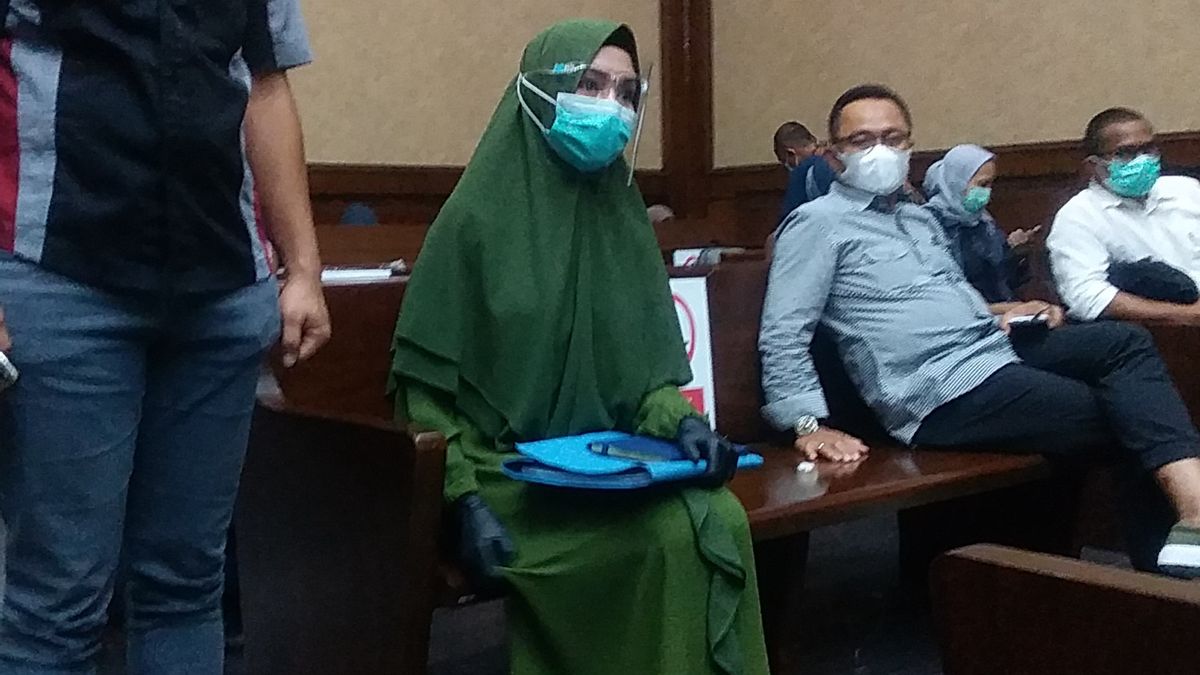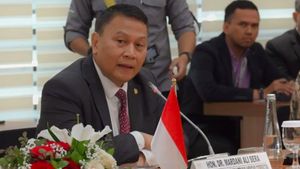JAKARTA - The sentence for former Pinangki Prosecutor Sirna Malasari was circumcised for six years or from 10 years to four years in prison, based on the decision of the DKI Jakarta High Court.
Indonesia Corruption Watch (ICW) considers this decision outrageous. ICW assessed that Pinangki, who was proven to have accepted bribes, laundered money and had a malicious conspiracy in connection with the corruption scandal involving the cessie Bank Bali, Joko Tjandra, should be sentenced to a maximum sentence of 20 years in prison.
"ICW considers that the appeal decision of the DKI Jakarta High Court against Pinangki Sirna Malasari is really outrageous. Why not, Pinangki should have been sentenced to a more severe sentence (20 years or for life), instead of reducing it from 10 years to 4 years in prison," said the researcher. ICW, Kurnia Ramadhana in her statement, Monday, June 14.
Kurnia reminded that when he committed his crime, Pinangki had the status of a prosecutor who is a law enforcer. Pinangki's status as a law enforcer, said Kurnia, should be the main reason for the punishment.
"In addition, Pinangki committed three crimes at once, namely: bribery corruption, money laundering, and malicious conspiracy. With this combination alone, the public can say that Pinangki's appeal decision has damaged public common sense," he stressed.
According to him, this decision clearly shows that the judiciary is not in favor of efforts to eradicate corruption. This, said Kurnia, has been clearly seen in the trend of monitoring the trial that ICW has carried out.
"The average sentence for corruptors throughout 2020 is only 3 years and 1 month in prison. With this condition, the corruptors should deserve to express their deepest gratitude to the Supreme Court," he said.
Based on PT DKI's decision, ICW encouraged the Attorney General's Office to file an cassation. This step was taken to open up opportunities for Pinangki to be punished more severely.
"In addition, the Chief Justice of the Supreme Court must be selective and supervise the cassation process. Because ICW believes that if there is no supervision, it is not impossible for Pinangki's sentence to be reduced again, and even released," he said.
On this occasion, ICW demanded the KPK's promise to supervise the case. The KPK is known to have issued a supervision order related to the Joko Tjandra scandal. However, it seems that the policy is just lip service.
"Instead of being a priority agenda, the KPK leadership is busy getting rid of a number of employees with the controversial National Insight Test," he said.
Moreover, ICW considers there are a number of groups that have not been investigated by the Attorney General's Office, one of which is the law enforcement cluster. Kurnia stated that it was impossible for Pinangki to move alone and commit crimes together with fugitive Joko Tjandra. There are a number of simple questions that have been the strongest bell throughout the legal process of the Joko Tjandra scandal so far, such as how could Joko Tjandra simply trust a prosecutor who does not hold a strategic position like Pinangki? Is there anyone who guarantees Pinangki so that Joko S Tjandra believes and then agrees to cooperate?
"Therefore, ICW recommends that the Judicial Commission and the Supervisory Body of the Supreme Court investigate the irregularities behind the decision," he said.
The English, Chinese, Japanese, Arabic, and French versions are automatically generated by the AI. So there may still be inaccuracies in translating, please always see Indonesian as our main language. (system supported by DigitalSiber.id)













